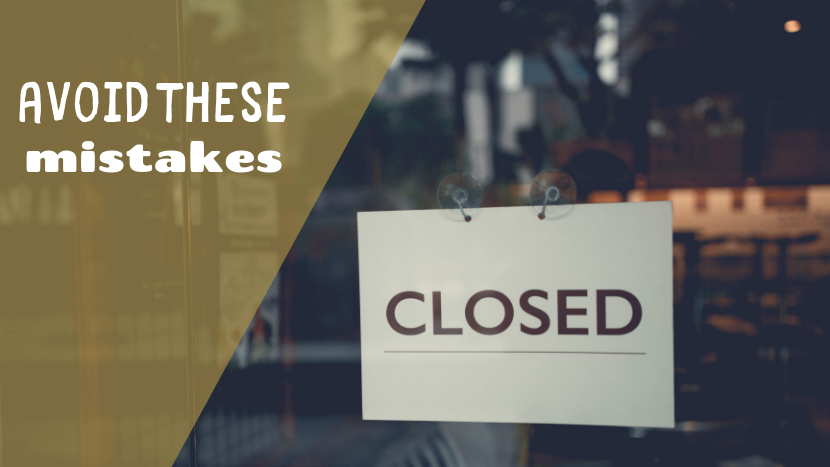Top 5 Reasons Small Businesses Fail

Small businesses are the backbone of the American economy. Most are owned and operated by the founding entrepreneur who had a dream and took a risk. Some risks pay off but unfortunately, the latest statistics from the Small Business Administration (SBA) show that over half of all business start-ups fail in the first 4 years. According to experts, here are the top 5 reasons small businesses fail:
Starting a business for the wrong reasons
If you think business ownership means you will make a lot of money, have more time with your family, or you can finally be your own boss, then you will be very surprised. Soon you will discover the business owner is often the last one to get a pay check, last to leave at the end of the day, and answers to everyone – customers, suppliers, and even employees.
Poor Management
Usually the founder (or entrepreneur) is an expert in one of the many disciplines it takes to manage a business. While generating sales may be your strength, accounting, finance, or hiring employees may be your weakness. Eventually all owners come to realize they don’t do everything well; however, it often happens after it is too late.
Insufficient Capital
Most failed businesses are the result of the business owner underestimating the amount of cash needed to start and run the business. There are three "buckets" of cash vital to your success:
- “Start-Up” cash includes advertising, printing, equipment purchases, signage, training costs, business licenses, initial inventory, and utility deposits.
- “Sales and Inventory Cash” is the money you need on hand to continue paying for overhead while you wait to convert your inventory or accounts receivable to cash. For example, if you sell out of inventory every 7 days but it takes 14 days to collect your receivables, then you need enough cash to buy 7 more days of inventory and pay operating overhead costs before you collect your receivables.
- “Rainy Day” capital is the emergency cash you need to cover unexpected expenses and delays.
Unless the business owner has considered, calculated and made plans to address all three capital needs, a business often fails before it even has a chance to succeed.
Check out our blog on better cash flow management.
No Business Plan
A business plan forces you to write down your business idea, analyze it from different angles and areas of responsibility, consider short and long term goals, and be certain you have considered how you will address all the necessary responsibilities of running the business. You'll also need to include:
- “Contingency Plans” for everything including unanticipated events
- “Exit Strategy” to determine how and when you need to get out of the business to minimize your losses
This gives you a benchmark to measure your goals, operational plans, and your market potential, so you will know more quickly when tweaks need to be made to the business.
Poor Accounting
A business owner is flying blind without reliable financial records. Failed businesses often skimp on accounting costs and do not have a mechanism to obtain financial updates about the business. Miscalculating profit percentage, operating costs, cash flow conversion, and not paying taxes timely will shut down a business in a hurry.
Peoples Bank of Alabama is proud to have helped small businesses in our communities for over 40 years. We all benefit when small businesses are thriving and we'd love an opportunity help your business.
